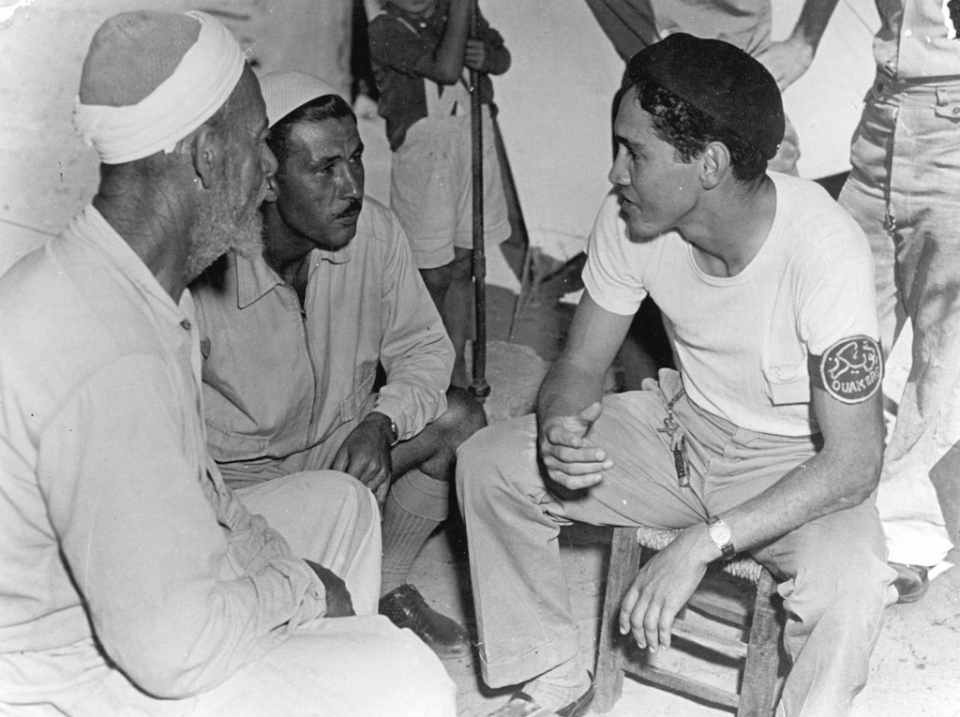
AFSC accepts the UN request and runs the refugee camps in the Gaza Strip until the creation of the UN Relief and Works Administration (UNRWA) in 1950.
Just before his assassination by Israeli extremists, Count Bernadotte had reached agreements with the International Committee of the Red Cross and the League of Red Cross Societies to administer international relief aid to Palestinians. UN Secretary Trygve Lie, however, feared that the UN could lose control or see a rivalry emerge if it relied only on the two Red Cross bodies. He wanted a third organization to take part. Eleanor Roosevelt recommended AFSC.
Although AFSC already had staff on the ground in Palestine, had proposed to Israel projects to repatriate displaced Palestinians and aid Jewish children, and was channeling aid to local organizations on both sides, the Service Committee hesitated to take on such a large role. AFSC Asian Relief Director Colin Bell’s memorandum for the November 17, 1948 Foreign Service Executive Committee meeting in Philadelphia describes the implications for the Service Committee of the UN request:
The United Nations enquiry whether the Quakers would undertake a large-scale relief program in the Palestine area bring the AFSC face to face with a challenge larger and more fraught with political implications than it has yet had to face. Acceptance will strain our resources of personnel and administrative capacity to the utmost. We take the risk of failure which will be a public failure, and even if we have some success we shall certainly not satisfy everyone. We cannot avoid censure from some quarters in a scene where ‘sweet reasonableness’ is utterly lacking. We shall be in a world limelight, and we will have to face some compromises away from our traditional ways of working. On the other hand, refusal would be a grave decision. Success in Palestine is a vital necessity for the future of the UN. The opportunity to demonstrate the power of the non-violent approach is enormous. The political people have turned to us because they believe we have something more to offer than merely a politically neutral position.
After enumerating nineteen conditions to undertake the project, including the condition that “a solution to the problem of resettlement was being vigorously sought by the UN and all others vitally concerned,” AFSC agrees to the UN request.